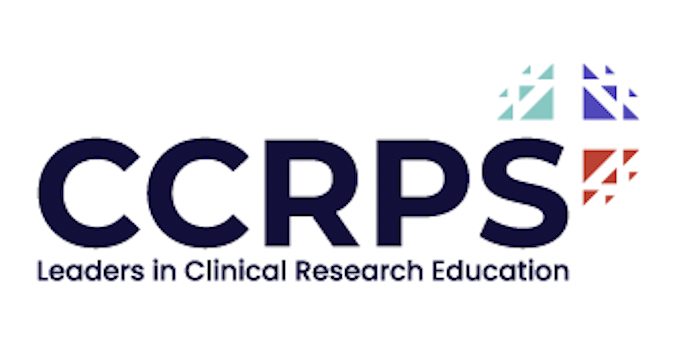The Ultimate Guide to Becoming a Clinical Research Associate
A clinical research associate (CRA) plays a vital role in the development of new medical treatments. They ensure that clinical trials are conducted ethically and according to protocols, monitoring the progress from start to finish. CRAs are essential for ensuring data integrity and regulatory compliance.
The demand for CRAs is increasing due to the growth of the pharmaceutical industry and more clinical research studies. This field offers many opportunities for career growth with competitive salaries and benefits.
To become a successful clinical research associate, it's important to have a strong understanding of various aspects of the job like GCP monitoring of clinical trials and familiarity with EU clinical trials registry.
To gain this knowledge and expertise, consider enrolling in specialized online certification courses offered by CCRPS. They provide flexible learning options designed specifically for individuals aiming to excel in clinical research.
What Does a Clinical Research Associate (CRA) Do?
A Clinical Research Associate (CRA) plays an integral role in the clinical research process, ensuring that clinical trials are conducted ethically, safely, and efficiently. CRAs are responsible for monitoring clinical trials and ensuring compliance with regulatory requirements and study protocols.
Key Responsibilities of a CRA:
Study Design and Protocol Development
CRAs assist in the development of study protocols, which outline the objectives, design, methodology, statistical considerations, and organization of a clinical trial. This ensures that the study is scientifically sound and regulatory compliant.
Site Selection and Initiation
They identify suitable sites for conducting clinical trials, assessing their qualifications and infrastructure. Once selected, CRAs initiate the sites by training site staff on study protocols and procedures.
Monitoring Visits
Regular site visits to monitor the progress of clinical trials are a key responsibility. During these visits, CRAs ensure data integrity by verifying source documents against case report forms (CRFs) and checking for protocol adherence.
Regulatory Compliance
Ensuring that all activities related to the trial comply with local and international regulations is critical. CRAs keep up-to-date with guidelines such as Good Clinical Practice (GCP) to maintain high standards throughout the research process.
Data Management
CRAs oversee data collection processes to ensure accuracy and completeness. They resolve any data discrepancies promptly to maintain data quality.
Safety Reporting
Monitoring participant safety is paramount. CRAs ensure that adverse events (AEs) and serious adverse events (SAEs) are reported in accordance with regulatory requirements, following pharmacovigilance practices.
Communication
Acting as a liaison between the sponsor, clinical sites, and regulatory bodies is another essential duty. Effective communication helps address issues swiftly and keeps all stakeholders informed about trial progress.
Documentation
Maintaining meticulous records of all aspects of the trial is crucial. CRAs document everything from visit reports to correspondence with investigative sites, ensuring transparency and traceability throughout the trial process.
These responsibilities highlight the importance of a CRA in maintaining the integrity of clinical trials. By managing these tasks effectively, CRAs contribute significantly to the advancement of medical knowledge and patient care.
Why Should You Consider a Career as a Clinical Research Associate?
High Demand for CRAs
The pharmaceutical industry is experiencing rapid growth, resulting in an increased number of clinical research studies. Consequently, there is a significant demand for skilled Clinical Research Associates (CRAs). These professionals play a vital role in overseeing clinical trials, ensuring adherence to regulatory guidelines and generating reliable data.
Opportunities for Career Advancement
A career as a Clinical Research Associate offers numerous opportunities for advancement. CRAs can transition into various management positions or specialize in specific research areas. Some potential career paths include:
Clinical Trial Manager: Overseeing multiple clinical trials and managing teams of CRAs.
Regulatory Affairs Specialist: Ensuring compliance with local and international regulations.
Project Manager: Coordinating all aspects of a clinical trial from start to finish.
These roles not only offer professional growth but also enable CRAs to make significant contributions to medical science.
Attractive Salary Packages and Benefits
CRAs receive competitive salaries and comprehensive benefits. Reports indicate that entry-level CRAs can earn attractive salaries which increase with experience and certifications.
Some benefits commonly provided to CRAs include:
Health Insurance: Comprehensive medical coverage.
Retirement Plans: Contributions towards retirement savings.
Paid Time Off: Generous leave policies.
The combination of financial rewards and benefits makes this career option appealing for individuals who seek fulfilling work while also achieving their personal financial goals.
For those interested in the field, it's worth exploring the resources available at CCRPS for insights on the latest trends, as well as the opportunities offered by contract research organizations in India.
The Path to Becoming a Successful Clinical Research Associate
1. Assessing Your Suitability for the Role
Before you embark on a career as a Clinical Research Associate (CRA), it's important to evaluate whether this path is right for you. Take some time to assess your interests, skills, and qualifications to determine if becoming a CRA aligns with your aspirations.
Exploring Your Interests
Passion for Science and Medicine: A strong interest in medical research and scientific inquiry is crucial. CRAs work closely with clinical trials that aim to improve healthcare outcomes.
Attention to Detail: The role involves meticulous documentation and adherence to protocols. If you enjoy tasks that require careful attention to detail, this could be a good fit.
Problem-Solving Skills: CRAs often face unexpected challenges during clinical trials. Having a knack for problem-solving can make the job more rewarding.
Evaluating Your Skills
Communication Skills: Effective communication with various stakeholders, including researchers, sponsors, and regulatory bodies, is vital.
Organizational Abilities: CRAs juggle multiple tasks at once, so strong organizational skills are necessary.
Technical Proficiency: Familiarity with data management systems and clinical trial software is beneficial.
Reviewing Your Qualifications
Educational Background: Most CRAs have degrees in life sciences or related fields. Consider if your educational background aligns with these requirements.
Experience in Clinical Research: Prior experience in clinical research roles, such as internships or volunteer work, can be advantageous.
For those seeking additional insights on gaining relevant experience, you may find it helpful to explore resources on how to get clinical trial experience here.
Additionally, for those interested in advancing their knowledge in specific areas, there are management forums that offer courses like the Management Forum Advanced Pharmacovigilance.
By conducting this thorough self-assessment, you can gain clarity on whether pursuing a career as a CRA aligns with your goals and strengths.
This foundational step sets the stage for acquiring the necessary education and skills needed to succeed in this field.
2. Acquiring the Necessary Education and Skills
Importance of an Academic Degree
Starting a career as a CRA requires a solid educational foundation. Obtaining an academic degree in a relevant field such as Life Sciences, Biology, or Health Sciences is essential.
This not only demonstrates your commitment to the field but also equips you with the fundamental knowledge needed to understand complex clinical research processes.
Medical Terminology Knowledge
A strong grasp of medical terminology is crucial for anyone aspiring to become a CRA. Clinical research involves intricate medical details that require precise understanding and communication. Developing this knowledge through coursework or specialized training programs is beneficial.
Courses offered by CCRPS provide comprehensive training in medical terminology specific to clinical research, which can greatly enhance your medical terminology proficiency.
Understanding Regulations
Clinical trials are governed by strict local and international regulations. Familiarizing yourself with these regulations is critical for ensuring compliance and maintaining the integrity of research data.
Training programs often include modules on regulatory affairs, helping you stay updated on guidelines such as ICH GCP (International Council for Harmonisation Good Clinical Practice).
Education and skill development are foundational steps in becoming a successful CRA. By focusing on obtaining relevant academic qualifications, mastering medical terminology, and understanding regulatory requirements, you set yourself up for a rewarding career in clinical research.
3. Gaining Experience in the Field of Clinical Research
Gaining practical experience is crucial for anyone looking to build a career as a Clinical Research Associate (CRA). This hands-on exposure not only enhances your resume but also provides you with invaluable insights into the daily responsibilities and challenges of the role.
Internships, Volunteer Work, and Certificate Courses
Taking up internships or volunteer positions in research organizations or healthcare facilities can offer a solid foundation. These opportunities allow you to:
Observe real-world clinical trials
Interact with experienced professionals
Understand regulatory requirements
Certificate courses in areas such as pharmacovigilance and pharmacoepidemiology offered by reputable institutions like CCRP can also significantly enhance your knowledge and make you more competitive in the field.
Volunteering can demonstrate your commitment to the field, making you a more attractive candidate for future employers.
Entry-Level Positions
Starting in entry-level roles such as Clinical Trial Assistant or Data Coordinator is another effective strategy. These positions often involve:
Monitoring data quality
Assisting in patient recruitment
Supporting CRAs in their tasks
Such roles help you build relevant experience while gaining an understanding of the intricacies involved in clinical research.
Personal Assessment
Before diving into these experiences, conducting a personal assessment can be beneficial. Ask yourself:
Do I have strong organizational skills?
Am I detail-oriented?
Can I handle multiple tasks efficiently?
This self-assessment helps ensure that a career as a CRA aligns with your personal strengths and career aspirations.
Investing time in gaining practical experience through internships, volunteer work, or entry-level positions not only strengthens your resume but also prepares you for the complexities of a CRA role.
Benefits of Becoming Certified
Getting certified as a CRA comes with several advantages:
Increased Job Prospects: Employers often prefer candidates who are certified, as it assures them of the applicant's competence and dedication to the field. This can make your job applications more competitive.
Professional Credibility: Certification provides an official acknowledgement of your skills and knowledge, enhancing your credibility among peers and employers.
Career Advancement: With certification, you position yourself for advanced roles within clinical research, opening doors to management positions or specialized areas of interest.
Investing in certification is a strategic move for those serious about a career as a CRA. It not only boosts your qualifications but also instills confidence in potential employers regarding your capability to manage complex clinical trials effectively.
For those looking to deepen their understanding of medical efficacy definitions or find clinical trials for specific conditions like cancer, additional resources can be found through CCRPS, an organization that offers valuable insights and expertise in the field.
They also provide specific resources like a comprehensive medical efficacy definition and guidance on how to find clinical trials for cancer.
Certifications are more than just credentials; they are gateways to numerous opportunities and professional growth in the dynamic world of clinical research.
5. Nailing the CRA Job Application Process
Finding and applying for CRA positions requires strategic planning and preparation. Here are some essential steps to enhance your job application process:
Strategies for Finding and Applying for CRA Positions
Leverage Online Job Portals:
Websites like Indeed, Glassdoor, and LinkedIn are great places to start.
Set up job alerts to receive notifications about new postings.
Networking:
Join professional groups on LinkedIn and attend industry conferences.
Connect with professionals in the field through platforms like CCRPS's alumni network.
Creating a Strong Resume and Cover Letter:
Resume Tips:
Highlight relevant education, certifications, and experience.
Use keywords from the job description to pass Applicant Tracking Systems (ATS).
Quantify achievements where possible (e.g., "Monitored over 50 clinical trials with a 98% compliance rate").
Cover Letter Tips:
Tailor each cover letter to the specific job and company.
Demonstrate your understanding of the role and how your skills align.
Mention any relevant training or certifications from CCRPS.
Preparing for Interviews with Potential Employers
Research the Company:
Understand their mission, values, and recent projects.
Familiarize yourself with their clinical trial focuses, such as cancer drug trials.
Showcase Your Knowledge:
Be prepared to discuss clinical trial phases, Good Clinical Practice (GCP), and regulatory requirements.
Share examples of how you've applied your knowledge in practical settings.
Behavioral Interview Questions:
Practice responses to questions about teamwork, problem-solving, and conflict resolution.
Use the STAR method (Situation, Task, Action, Result) to structure your answers.
Technical Skills Demonstration:
You might be asked about specific tools or software used in clinical research.
Mention any hands-on experience you have with Electronic Data Capture (EDC) systems or other relevant technologies.
By following these strategies, you'll position yourself as a strong candidate in your career as a CRA.
6. Continuing Your Professional Development as a CRA
Staying updated on industry advancements is vital for a successful career as a Clinical Research Associate (CRA). Engaging in continuous professional development ensures that you remain knowledgeable about the latest trends, regulations, and best practices in clinical research.
Participation in Workshops and Conferences
Workshops: Attending workshops allows CRAs to gain hands-on experience and practical skills. These sessions often cover new methodologies, regulatory updates, and emerging technologies in clinical trials.
Conferences: Industry conferences provide valuable networking opportunities. They bring together professionals from various sectors of clinical research, fostering knowledge exchange and professional growth.
Ongoing Training Opportunities
Online Courses: Enrolling in online courses can be a flexible way to stay current with industry standards. CCRPS offers a range of specialized certification courses like CRA, CRC, and ICH GCP that are designed to enhance your expertise.
In-House Training Programs: Many organizations offer internal training programs tailored to their specific needs. Participating in these programs can help CRAs stay aligned with their employer's expectations and protocols.
Self-Assessment and Personal Growth
Regular self-assessment helps CRAs identify areas for improvement and set career goals. Exploring personal interests and strengths can guide you towards specialized areas within clinical research, such as data management or regulatory affairs.
For more insights on maintaining industry relevance, consider exploring resources like our clinical trial monitoring plan SOPs or understanding salary trends through our clinical trial assistant salary guide.
These guides can offer additional context for your ongoing professional development.
Embracing continuous learning not only enhances your competency but also boosts your career prospects. As the clinical research landscape evolves, being proactive about professional growth ensures you remain a valuable asset to any research team.
How CCRPS Can Help You Become a Clinical Research Associate Faster
Comprehensive Online Certification Courses
CCRPS offers specialized online certification courses tailored to the needs of aspiring Clinical Research Associates (CRAs). These courses include:
ICH Good Clinical Practice (GCP) Certification
Benefits of Choosing Online Learning
Opting for online certification through CCRPS brings multiple advantages:
Flexibility: Learn at your own pace, fitting coursework around your existing schedule. This is particularly beneficial for those balancing current jobs or academic commitments.
Accessibility: Access course materials from anywhere in the world. No need to relocate or commute, making it easier to integrate learning into your daily life.
Online learning also allows you to revisit course materials as needed, ensuring you fully grasp each topic before moving on.
Ensuring Industry Relevance Through Updated Curriculam
CCRPS ensures its courses reflect the latest industry standards and best practices. The curriculum is continually updated, incorporating new developments in clinical research techniques and regulatory guidelines.
This commitment to excellence ensures that graduates are well-prepared for the evolving demands of the field.
Graduates from CCRPS often share success stories, highlighting how these courses have facilitated their transition into CRA roles.
For instance, many have noted that the comprehensive nature of CCRPS training gave them a competitive edge in job applications and interviews.
Recognition and Trust in the Field
CCRPS is widely recognized as a credible training provider within the clinical research community. Many leading research organizations and agencies prefer candidates who have completed certification programs from CCRPS.
This recognition not only enhances your resume but also increases your professional credibility.
Choosing CCRPS for your certification means aligning yourself with a trusted institution known for producing competent and knowledgeable CRAs.
The industry trust in CCRPS graduates is a testament to the quality and relevance of their training programs.
By selecting CCRPS for your CRA certification, you are making a strategic decision to boost your career prospects and prepare for a successful future in clinical research.
Conclusion
Choosing a career as a Clinical Research Associate (CRA) opens doors to many opportunities for growth, competitive salaries, and the satisfaction of contributing to medical advancements. The path to becoming a CRA may seem challenging, but with hard work and the right guidance, you can achieve your goals.
CCRPS is here to support you throughout this journey. We offer comprehensive online certification courses designed specifically for clinical research roles, providing you with:
Flexibility: Learn at your own pace through our accessible online modules.
Up-to-date Knowledge: Stay informed about the latest practices and standards in clinical research.
Professional Recognition: Earn certifications that are widely acknowledged by top research organizations and agencies.
With CCRPS's resources, you can turn your dreams into reality. Join thousands of successful graduates who have advanced their careers in clinical research through our programs.
Contact us today and become a part of the dynamic field of clinical research associates.
FAQs (Frequently Asked Questions)
What is the role of a Clinical Research Associate (CRA)?
A Clinical Research Associate (CRA) is responsible for overseeing and monitoring clinical trials conducted by pharmaceutical companies, contract research organizations (CROs), or academic medical centers. Their role involves ensuring that the trials are conducted in compliance with regulatory standards, protocols, and good clinical practice (GCP). CRAs also verify the accuracy of data collected during the trials and communicate with the study site staff to address any issues that may arise.
Why should I consider a career as a Clinical Research Associate?
Becoming a Clinical Research Associate offers numerous opportunities for career growth and development. The pharmaceutical industry's continuous expansion and the rise in clinical research studies have created a high demand for CRAs. This demand translates into attractive salary packages, benefits, and opportunities for advancement into management roles or specialized areas of research.
How can I become a successful Clinical Research Associate?
Becoming a successful Clinical Research Associate involves several key steps. These include assessing your suitability for the role by exploring your interests, skills, and qualifications; acquiring the necessary education and skills in fields such as Life Sciences and medical terminology; gaining relevant experience through internships or entry-level positions; considering certification programs offered by reputable organizations CCRPS nailing the job application process through effective resume crafting and interview preparation; and continuing your professional development through ongoing training opportunities.
What does CCRPS offer to help me become a Clinical Research Associate?
CCRPS provides comprehensive online certification courses tailored to individuals aspiring to become Clinical Research Associates. These courses cover essential knowledge areas such as CRA, CRC, and ICH GCP. By choosing online learning with CCRPS, you can benefit from flexibility and accessibility while gaining industry-relevant skills. Additionally, CCRPS ensures that their curricula reflect the latest industry standards and best practices, thereby accelerating your journey towards becoming a successful CRA.
How does CCRPS ensure industry relevance through its courses?
CCRPS maintains industry relevance by enhancing its course curricula to reflect the latest standards and best practices in clinical research. Graduates of CCRPS courses have successfully transitioned into CRA roles, showcasing the effectiveness of CCRPS training in preparing individuals for careers in clinical research.
Why should I trust CCRPS as a training provider for Clinical Research Associate certification?
CCRPS is recognized as a trusted training provider by leading research organizations and agencies within the field of clinical research. The credibility of CCRPS is evidenced by its success stories of graduates who have excelled in their careers as CRAs after completing the specialized online certification courses offered by CCRPS.





